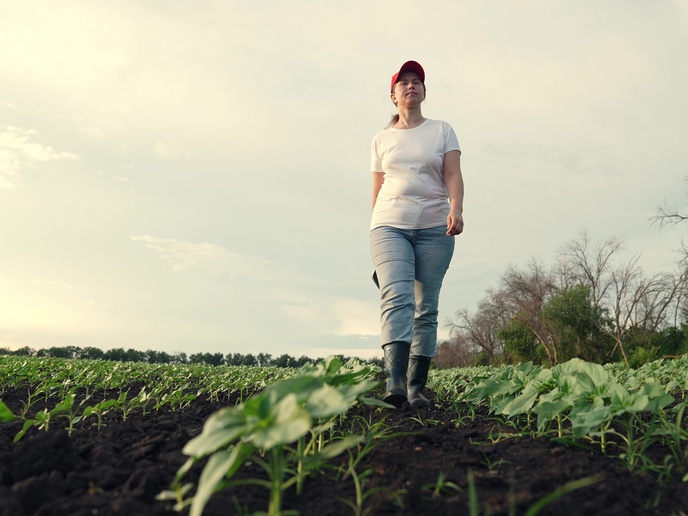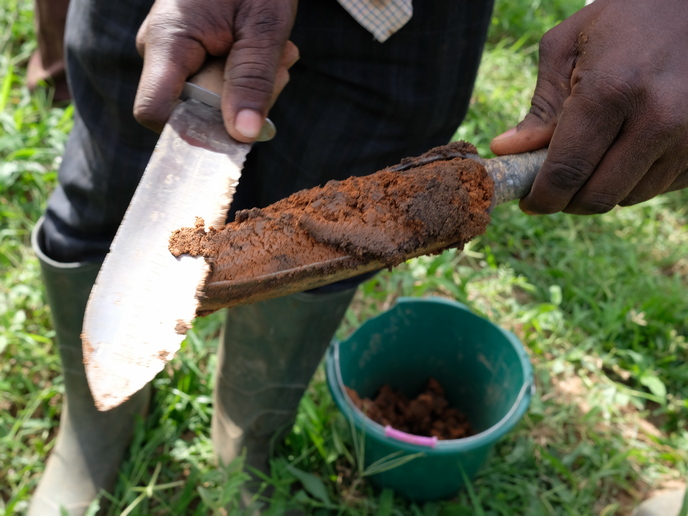Research shows that prioritising agroecological transitions is the key to creating a more sustainable and just food system.
Climate change is forcing society to rethink the way we produce and consume food. “We must shift from today’s food systems towards more equitable and resilient ones that prioritise environmental, economic and social factors,” explains Claire Lamine, a sociologist at the French National Research Institute for Agriculture, Food and Environment(opens in new window) (INRAE). While making this transition is easier said than done, it’s a challenge that, through the EU-funded ATTER(opens in new window) project, Lamine, together with ecologist Danièle Magda, set out to achieve. “These are complex transformations that involve systemic changes in how we produce, consume, process and distribute food, and making them will require comprehensive stakeholder participation, technological innovation and policy support,” says Lamine.
Using agroecology to support territorial food systems
The Marie Skłodowska-Curie Actions(opens in new window) supported project developed tools, solutions and knowledge to facilitate and support agroecological transitions in territorial food systems. “To address Sustainable Development Goals(opens in new window) and the challenges of food systems transitions, agroecology is increasingly being recognised as a promising model and the territorial scale as an appropriate scale of analysis and action,” notes Lamine. While agroecology has many definitions, ATTER views it as being a holistic approach to agriculture and sustainable food systems. “Based on the ecological and social principles developed through the study of peasant agriculture and regional foodways, agroecology prioritises working with nature and looks to use natural processes to enhance biodiversity, soil health and yield while favouring equity among the food systems’ actors,” adds Lamine. Territorial food systems are systems deeply embedded within specific geographical and cultural areas and embody a scale where local food networks can be strengthened, agroecological practices promoted, and reliance on global supply chains reduced.
Case studies highlight a range of territorial food systems
The project developed a portfolio of 16 territorial case studies(opens in new window) with contrasted socio-agro-ecological characteristics in Brazil, France, Italy, the United Kingdom and the United States. These include rural and urban contexts, as well as small regions where the agricultural productions are more specialised or more diversified, the agrifood networks and civil society initiatives more or less active, and the public policies more or less supportive. The analysis of the case studies shows how and to what extent short food supply chains, sustainable public food procurement, multi-stakeholder partnerships and local food markets can foster food sovereignty, improve public health, reduce environmental impact and empower smallholder farmers.
Time to prioritise agroecological transitions
Based on these case studies, the project delivered a comprehensive analysis on the diversity of transition pathways and the mechanisms that can foster or impede transition processes. It also provided methodological and policy recommendations to support transition dynamics in their context in an inclusive and participatory way. “Our work highlights how successful agroecological transitions in territorial food systems are very much context-dependent,” remarks Lamine. The project developed a shared observatory(opens in new window) where stakeholders can explore the case studies’ analyses. It also created a range of online training sources(opens in new window) that researchers, students, stakeholders, citizens and decision makers can use to learn more about the agroecological transition of territorial agrifood systems. “Not only has the ATTER project showed why we need to prioritise agroecological transitions, it developed an original methodology to make those transitions happen,” concludes Lamine. “In doing so, it helped set a sustainable course towards achieving food democracy and food justice.”







